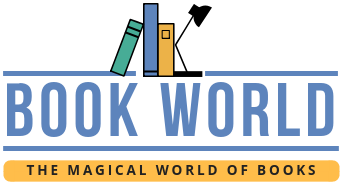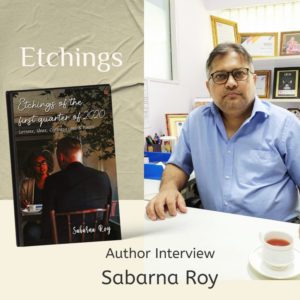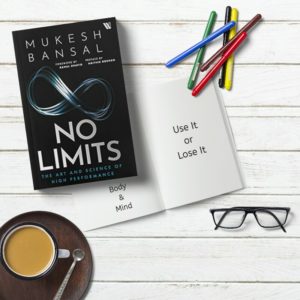
Embark on a literary journey with an extraordinary author and scholar, Onyeka Nwelue. Born in 1988, Nwelue is a prominent figure in academia, having held esteemed positions in African studies at two of the world’s most prestigious institutions, the University of Oxford and the University of Cambridge. His remarkable contributions to the world of literature and African studies have garnered international acclaim. In this exclusive interview, we delve into the life and experiences of this multifaceted talent, exploring his literary creations, his academic pursuits, and the intricate tapestry of his insights. Join us as we unravel the captivating story of Onyeka Nwelue and his newly launched book The Nigerian Mafia: Mumbai
1. You have a wide range of creative and academic pursuits, from filmmaking to academic visits at the University of Oxford. Could you please share with our readers how these diverse roles and experiences have influenced your creative process as an author?
Answer: Thank you. My academic Visitorship to the University of Oxford, was to leverage on such platform, to develop new vocabularies and few other things. In fact, the first month of arriving Oxford, I screened my biopic of Emeka Ojukwu.
I had been working in film, before Oxford and I already adapted my book into a film. I believe that all works of art are hugely intertwined. When I write a book, I write in a way that you could see the characters, that you can interact with them. Like cinema.
2. What sparked the creation of ‘The Nigerian Mafia Mumbai’ and the specific storyline and themes it explores, such as violence, drugs, human trafficking, murder, and sex?
Answer: Absolutely, let’s expand on this to make it more engaging and intriguing:
Every morning in India, as I scanned the newspapers and delved into the front-page headlines, one recurring story caught my attention – the arrests of Nigerians on drug-related charges. It was a curious and persistent theme, one that couldn’t be dismissed lightly. The more I read, the more questions arose in my mind. Who were the individuals purchasing these drugs from these Nigerian nationals? Where did these narcotics originate, and how did they infiltrate the Indian market? These mysteries gripped me.
As each day unfolded with these sensational headlines, I found myself unable to ignore the sheer intrigue of it all. The stories behind these arrests were shrouded in a captivating enigma, waiting to be unraveled. So, it was at that moment, in the midst of these vivid headlines and my own growing curiosity, that I made a decision – I thought, “Why not?” Why not venture into the intricate world of these narratives, explore the untold stories, and bring to light the hidden truths that lay beneath the surface?
The idea of exploring the world of these Nigerian individuals, their connections, and the illicit drug trade was like stepping into a realm of mystery, intrigue, and suspense. It was a challenge, but it was also an adventure waiting to happen. The question of “Why not?” marked the beginning of a journey that would take me deep into the heart of Mumbai’s underbelly, where the lines between fact and fiction blurred, and where I would discover stories that were as riveting as they were complex.
3. In ‘The Nigerian Mafia Mumbai,’ you provide a glimpse into the underbelly of life in Mumbai. Can you elaborate on the research or personal experiences that informed your portrayal of this dark and dangerous world? Something about the role of Mumbai as a backdrop in your novel and how the city itself influences the narrative and characters?
Answer: Mumbai, the ‘City of Dreams,’ plays a multifaceted role in ‘The Nigerian Mafia Mumbai,’ becoming more than just a backdrop – it transforms into a character of its own. My experiences and extensive research became the key to capturing the essence of this vibrant yet enigmatic city.
Having arrived in Mumbai back in 2006 at the tender age of 18, the city made an indelible impression on me. It’s a bustling metropolis, quite reminiscent of Lagos in its own way, teeming with people, each with their unique story to tell. The sheer diversity and energy of Mumbai have always left an enduring mark on my consciousness. It’s a city that mirrors life in its rawest form – chaotic, unforgiving, yet incredibly fascinating.
Incorporating Mumbai into the narrative was an intuitive choice. I firmly believe that every city holds a multitude of untold stories within its streets, and Mumbai is no exception. It provided the perfect canvas for the tales I wished to convey – a city that hustles and bustles, but also a city with a myriad of secrets, mysteries, and the potential for both hope and despair.
Mumbai, with its contrasting facets, influenced the development of the characters in the novel as they navigated its narrow lanes and winding by-lanes. Its dynamism, the hushed conversations that echoed in its dimly lit corners, and the ever-present sense of urgency seeped into the characters’ lives and decisions.
In the end, ‘The Nigerian Mafia Mumbai’ is as much a story about the city itself as it is about the characters. It’s about unveiling the layers of Mumbai, a city that has witnessed countless stories and harboured numerous secrets, and how these intricacies shaped the narrative into the riveting tale it has become.
4. The protagonist, Uche Mbadiegwu, embarks on a journey from Nigeria to India to join Bollywood. How did you approach developing this character and his aspirations?
Answer: Creating Uche Mbadiegwu, the protagonist of ‘The Nigerian Mafia Mumbai,’ was a dynamic and intriguing journey for me. It all began with my deep-rooted fascination for cinema, and particularly, my interest in contrasting the worlds of Bollywood and Nollywood.
Bollywood, nestled in the heart of Bombay, India, and Nollywood, prominently located in Surulere, Lagos, Nigeria, are two cinematic giants that have captivated the world in their unique ways. As bustling epicentres of creativity, each city boasts its own distinct charm, style, and pulse, which I found incredibly inspiring.
I sought to interweave these two cinematic powerhouses into the narrative, creating a rich tapestry of cultural contrasts and human experiences. Uche Mbadiegwu, an Igbo man, emerged as the perfect character to embody this dynamic. In constructing Uche’s character, I didn’t shy away from acknowledging and even playing with stereotypes. These stereotypes, while not wholly representative, do have a role in shaping cultural perceptions. It allowed me to delve into the complexities of identity, dreams, and the journey one embarks on to achieve their aspirations.
As Uche’s character developed, his aspirations became the driving force behind the narrative. His quest to join Bollywood served as a metaphorical journey, not only through geographical borders but also through the intricacies of life, dreams, and human connections. Uche’s character reflects the diverse and vibrant influences that mould people’s aspirations, making his journey a reflection of the enthralling amalgamation of dreams, stereotypes, and the indomitable human spirit.
In ‘The Nigerian Mafia Mumbai,’ Uche becomes a vessel for exploring the dynamics of these two worlds and how they intertwine in ways that are both expected and surprising. The character’s aspirations mirror the film industries themselves, with all their glitz and glamour, while also revealing the depth, complexity, and challenges that lie beneath the surface.
5 Readers often find an author’s personal experiences woven into their work. Are there elements of your own life or experiences that influenced ‘The Nigerian Mafia Mumbai’?
Answer: In the case of ‘The Nigerian Mafia Mumbai,’ it’s important to clarify that the narrative doesn’t draw extensively from my personal experiences. While it’s not a direct reflection of my own life, the story does encapsulate elements that arise from an in-depth exploration of specific social and cultural landscapes.
The novel’s genesis lies in the observations and questions that often arose from headlines and news stories about Nigerians in India. Every day, these narratives seemed to echo in the newspapers and media, sparking my curiosity about the complexities that lay beneath the surface. Questions about who these Nigerians were, where they came from, and how they became entangled in these events flooded my mind.
Hence, the novel is more an outcome of extensive research, observations, and a deep exploration of the socio-cultural dynamics at play. It offers a perspective on the underbelly of life in Mumbai through a lens of intrigue, rather than a reflection of personal experiences.
‘The Nigerian Mafia Mumbai’ is a tapestry woven from an eclectic range of inspirations, including conversations, media accounts, and reflections on the world around me. It invites readers to journey through a narrative that mirrors the bustling, multifaceted cities of Mumbai and Lagos, uncovering the myriad layers that define the lives of the characters that inhabit them.
6. Writing can be a solitary endeavour, and I’m curious about how you stay motivated and disciplined, especially during challenging moments in the writing process. Could you also share some of the most memorable or challenging moments you encountered while writing ‘The Nigerian Mafia Mumbai’ and how you managed to stay on course?
Answer: Maintaining motivation and discipline in writing has always been a personal forte of mine. When I’m immersed in a writing project, I’m known to be unwavering in my commitment. I believe that setting a clear intention and dedicating myself to the task at hand is the key to navigating the solitary journey that writing often entails. This unwavering focus has been my driving force through many challenging moments.
As for ‘The Nigerian Mafia Mumbai,’ I would hesitate to label any phase of its creation as particularly challenging. Instead, I found the process to be incredibly engaging and deeply fulfilling. Moreover, the book’s association with my Indian editor further added to my confidence. With her expertise and guidance, the entire process was seamless, leaving me with little room for doubt or concern.
In a nutshell, the unwavering dedication to the project, coupled with the efficient collaboration with my editor, made the journey of writing ‘The Nigerian Mafia Mumbai’ more of an exhilarating experience than a daunting challenge. It highlights the essence of disciplined determination in navigating the intricate path of a writing endeavor.
7. As ‘The Nigerian Mafia Mumbai’ is the first book in a 10-book series, could you provide some insights into your plans and vision for the upcoming books in the series? Will the entire 10-book series primarily be based in India, or can readers expect the narrative to travel to different parts of the world in subsequent books?
Answer: Absolutely, ‘The Nigerian Mafia Mumbai’ is just the opening act in a thrilling 10-book series. The second instalment is already in the works and will transport readers to the captivating backdrop of São Paulo. You can look forward to its release on February 1st, 2024, which is right around the corner.
The series is not tethered to a single location; rather, it’s designed to be an exhilarating globetrotting adventure. The third book will sweep you away to Johannesburg, while the fourth instalment unfolds its narrative in Freetown. This diversity in settings allows for a rich and dynamic reading experience as the series progresses through different countries. Each book introduces new flavours and experiences, giving readers a taste of distinct cultures and locales around the world.
8. During your time in India, which places did you find most inspiring or intriguing, and were there any memorable food experiences or dishes that you relished?
Answer: During my stay in India, I discovered inspiration in various places. Ottapalam in Kerala stood out as a fascinating location, and Paonta Sahib in Himachal Pradesh left a lasting impression. Noida and Jaipur also held their own unique charm. India, with its diverse landscapes and cultures, never ceased to amaze me. I fancy India a lot!
Additionally, I had some memorable culinary experiences in India. The flavors and variety of dishes are truly unmatched. While in Imphal, I had the pleasure of savoring the North East’s delectable cuisine. Shillong, with its culinary delights, was another place that left a delightful taste in my memory.
9. If you could have dinner with any historical figure, living or deceased, who would it be, and what’s the one question you would ask them?
Answer: I have had lunch with him: Professor Wole Soyinka, who won the Nobel Prize in Literature in 1986. I have asked him the question: “Who do you lean on?” He said: “I manage.”
10 What’s your guilty pleasure when it comes to entertainment, like a favorite movie or TV show that you secretly enjoy?
Answer: I love Malayalam and Telugu films. I also enjoy Korean drama.


